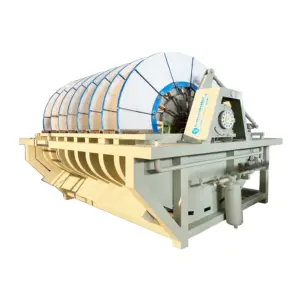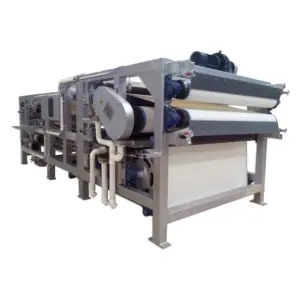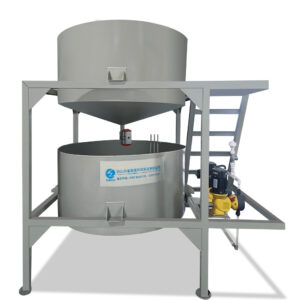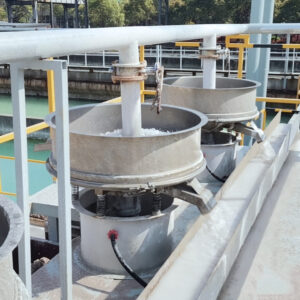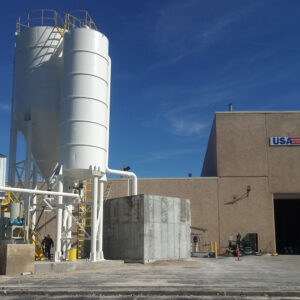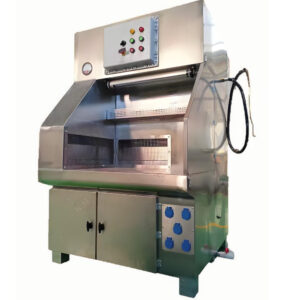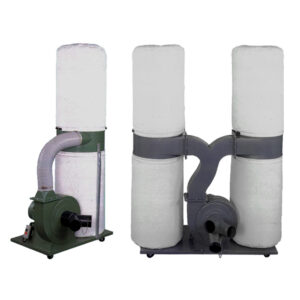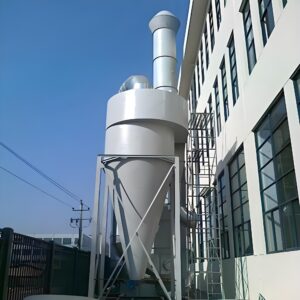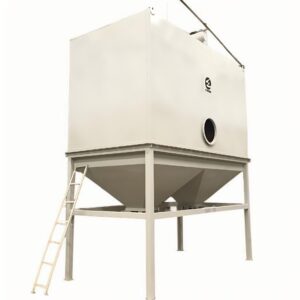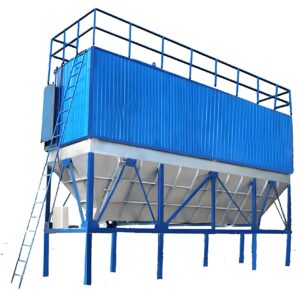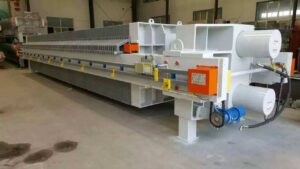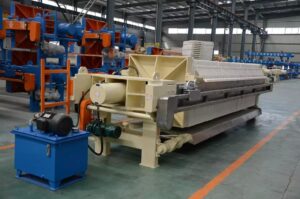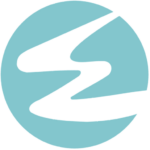Der Markt für Industriefiltration steht vor einer kritischen Herausforderung, die zahlreiche Betriebe weltweit betrifft: übermäßige Abhängigkeit von Herstellern von Filterpressen aus einer Hand. Wenn Ihr Hauptlieferant mit Lieferverzögerungen, Preiserhöhungen oder der Einstellung von Teilen konfrontiert ist, wird ein Produktionsstillstand eher zu einer realen Bedrohung als zu einer theoretischen Sorge. Diese Abhängigkeit schafft eine Schwachstelle, der intelligente Facility Manager zunehmend durch Diversifizierungsstrategien begegnen.
Die Folgen dieser übermäßigen Abhängigkeit gehen weit über Unannehmlichkeiten hinaus. Die Kosten für verlängerte Ausfallzeiten können in Betrieben mit hohem Durchsatz Tausende von Dollar pro Stunde erreichen, während die Beschaffung im Notfall oft mit 200-400%-Preisaufschlägen verbunden ist. Die Qualitätskontrolle wird beeinträchtigt, wenn Einrichtungen ohne angemessene Bewertungsprotokolle eilig Ersatz beschaffen.
Diese umfassende Analyse befasst sich mit bewährten alternativen Filterpressenlösungen, kompatiblen Ausrüstungsoptionen und strategischen Ansätzen für den Aufbau belastbarer Filtersysteme. Wir untersuchen Leistungsvergleiche, Kompatibilitätsrahmen und Implementierungsstrategien, die führende Industrieanlagen nutzen, um die Betriebskontinuität aufrechtzuerhalten und gleichzeitig die Kosten zu optimieren.
Was sind alternative Filterpressenlösungen?
Alternative Filterpresse Systeme stellen einen strategischen Ansatz für die Industriefiltration dar, bei dem Flexibilität, Kosteneffizienz und die Stabilität der Lieferkette im Vordergrund stehen. Diese Lösungen umfassen kompatible Geräte verschiedener Hersteller, universelle Komponenten und Alternativen auf dem Nachrüstungsmarkt, die eine vergleichbare Leistung wie die Systeme der Erstausrüster (OEM) bieten.
Verständnis der allgemeinen Filterpressentechnologie
Generische Filterpressenlösungen nutzen standardisierte technische Prinzipien, die über markenspezifische Designs hinausgehen. Die grundlegenden Komponenten - Hydrauliksysteme, Membranplatten und Filtrationskammern - funktionieren nach universellen mechanischen Prinzipien, die bei richtiger Abstimmung eine markenübergreifende Kompatibilität ermöglichen.
Die moderne Filtrationstechnik hat sich zu standardisierten Abmessungen und Anschlussprotokollen entwickelt. Diese Standardisierung ermöglicht es Anlagen, Komponenten verschiedener Hersteller zu integrieren und dabei die Systemintegrität zu wahren. Nach Untersuchungen der Filtrationsbranche können etwa 70% der Filterpressenkomponenten erfolgreich durch kompatible Alternativen ersetzt werden, wenn die richtigen Auswahlkriterien angewandt werden.
Vorteile der universellen Systemarchitektur
Universelle Filtersysteme bieten eine noch nie dagewesene Flexibilität bei der Wartungs- und Erweiterungsplanung. Anstatt an das Ökosystem eines einzigen Anbieters gebunden zu sein, können die Anlagen jede Komponente auf der Grundlage spezifischer Leistungsanforderungen und Kostenüberlegungen optimieren.
Der modulare Charakter dieser Systeme ermöglicht schrittweise Übergänge und Hybridkonfigurationen. Viele Anlagen arbeiten erfolgreich mit markengemischten Systemen, bei denen die Hydraulikkomponenten eines Herstellers nahtlos mit den Filtrationskammern eines anderen Herstellers zusammenarbeiten, wodurch maßgeschneiderte Lösungen entstehen, die Alternativen aus einer Hand übertreffen.
| Bauteil-Typ | Standardisierungsgrad | Markenübergreifende Kompatibilität |
|---|---|---|
| Hydraulische Systeme | Hoch | 85-90% |
| Filterplatten | Mittel | 60-75% |
| Komponenten der Membrane | Mittel | 55-70% |
| Kontrollsysteme | Variabel | 40-80% |
Wie identifiziert man kompatible Filtergeräte?
Die Beurteilung der Kompatibilität erfordert eine systematische Bewertung der technischen Spezifikationen, der Abmessungsanforderungen und der Betriebsparameter. Zu den kritischsten Faktoren gehören Hydraulikdruckwerte, Plattenabmessungen und Anschlussspezifikationen.
Technische Spezifikation Abgleich
Eine erfolgreiche Kompatibilität hängt von der genauen Abstimmung der hydraulischen Druckkapazitäten, der Durchflussraten und des Volumens der Filtrationskammern ab. Die meisten industriellen Filterpressen arbeiten innerhalb von Standarddruckbereichen von 15-25 bar, was die Möglichkeit einer markenübergreifenden Kompatibilität schafft, wenn die Spezifikationen richtig aufeinander abgestimmt sind.
Ein weiterer entscheidender Kompatibilitätsfaktor sind die Anschlussspezifikationen. Standardisierte DIN- und ANSI-Verbindungsprotokolle erleichtern die Integration der Komponenten verschiedener Hersteller. Bei proprietären Anschlusssystemen können jedoch Adapterlösungen oder kundenspezifische Anpassungen erforderlich sein.
Bewertung der dimensionalen Kompatibilität
Die Abmessungen der Filterplatten müssen genau übereinstimmen, um eine ordnungsgemäße Abdichtung und betriebliche Wirksamkeit zu gewährleisten. Zu den Standardplattengrößen gehören 630 mm, 800 mm, 1000 mm und 1200 mm, wobei sich die meisten Hersteller an diese Industrienormen halten.
Unterschiedliche Kammertiefen können sich auf die Filtrationskapazität und die Zykluszeiten auswirken. Die Standardtiefen reichen von 25 mm bis 60 mm. Die Mischung verschiedener Tiefen innerhalb desselben Systems erfordert eine sorgfältige Berechnung der Gesamtkapazität und der Auswirkungen auf die Leistung.
Überprüfung der Leistungsparameter
Die Filtrationseffizienz, der Feuchtigkeitsgehalt des Kuchens und die Zykluszeit müssen durch kontrollierte Testprotokolle überprüft werden. Generische Lösungen sollten eine Leistung innerhalb der 5-10% der OEM-Spezifikationen aufweisen, um die Betriebskontinuität zu gewährleisten.
Unabhängige Tests, die von Ingenieurbüros für Filtrationstechnik durchgeführt werden, bieten einen objektiven Leistungsnachweis. Diese Bewertungen umfassen in der Regel Drucktests, die Überprüfung der Durchflussrate und die Bewertung der langfristigen Haltbarkeit unter tatsächlichen Betriebsbedingungen.
Warum sollten Sie sich für universelle Filtersysteme und nicht für markenspezifische Lösungen entscheiden?
Die strategischen Vorteile von Universalfiltersystemen gehen über anfängliche Kosteneinsparungen hinaus und umfassen auch langfristige betriebliche Flexibilität und Risikominderung. Diese Systeme bieten eine Absicherung gegen Unterbrechungen der Lieferkette und ermöglichen gleichzeitig eine Leistungsoptimierung durch die Auswahl der besten Komponenten der Branche.
Strategien zur Kostenoptimierung
Generische Filterpressenlösungen bieten in der Regel 15-30% Kosteneinsparungen im Vergleich zu OEM-Alternativen, mit noch größeren Einsparungen bei Ersatzteilen und Wartungskomponenten. Dieser Kostenunterschied ist besonders wichtig für Betriebe mit hohem Durchsatz, die einen häufigen Austausch von Komponenten erfordern.
Unsere Erfahrung in der Zusammenarbeit mit Fertigungsbetrieben hat gezeigt, dass die Gesamtbetriebskosten für Universalsysteme über einen Betriebszeitraum von fünf Jahren im Durchschnitt 25% niedriger sind als bei Alternativen aus einer Hand. Diese Berechnung umfasst die Kosten für die Erstausrüstung, die Wartungskosten und die Verluste durch Ausfallzeiten.
Vorteile der Widerstandsfähigkeit der Lieferkette
Durch diversifizierte Lieferantenbeziehungen werden Risiken vermieden, die von einzelnen Herstellern abhängige Einrichtungen plagen. Wenn es bei einem Lieferanten zu Produktionsverzögerungen oder Qualitätsproblemen kommt, sorgen alternative Quellen für eine kontinuierliche Betriebsfähigkeit.
Branchendaten zeigen, dass Einrichtungen, die Strategien mit mehreren Lieferanten anwenden, 40% weniger Produktionsunterbrechungen aufgrund von Problemen mit der Anlagenverfügbarkeit erleben. Diese Ausfallsicherheit schlägt sich direkt in einer verbesserten Gesamtanlageneffektivität (OEE) und geringeren Kosten für Notfallbeschaffungen nieder.
Möglichkeiten der Leistungsanpassung
Universelle Systeme ermöglichen es den Einrichtungen, einzelne Komponenten auf der Grundlage spezifischer Anwendungsanforderungen zu optimieren, anstatt sich mit Herstellerpaketen zufrieden zu geben. Dieser Ansatz ermöglicht eine Leistungssteigerung in kritischen Bereichen, während die Kosteneffizienz bei weniger anspruchsvollen Anwendungen erhalten bleibt.
"Die Möglichkeit, optimale Komponenten von verschiedenen Herstellern auszuwählen, hat es uns ermöglicht, eine 15% bessere Entwässerungsleistung zu erzielen und gleichzeitig die Wartungskosten um 20% zu senken", bemerkt Sarah Chen, Process Engineering Manager in einer großen chemischen Verarbeitungsanlage.
Welche alternativen Filtermarken bieten eine verlässliche Leistung?
Die alternative Filtrationslandschaft umfasst etablierte Hersteller, die bewährte Lösungen anbieten, die die Leistungsstandards der Erstausrüster erfüllen oder übertreffen. Diese Marken haben spezielles Fachwissen über kompatible Systeme und Lösungen für den Ersatzteilmarkt entwickelt.
Etablierte alternative Hersteller
Mehrere Hersteller haben sich einen Namen gemacht, indem sie hochwertige Alternativen zu den großen OEM-Marken anbieten. Diese Unternehmen konzentrieren sich auf das Reverse-Engineering erfolgreicher Designs, wobei sie Verbesserungen auf der Grundlage von Praxiserfahrungen und Kundenfeedback einbeziehen.
PORVOO Saubere Technik ist ein führendes Beispiel für alternative Filtrationslösungen und bietet umfassende Systeme, die für die Kompatibilität mit den wichtigsten Industriestandards ausgelegt sind. Ihr technischer Ansatz betont die universelle Kompatibilität bei gleichzeitiger Beibehaltung der hervorragenden Leistung.
Regionale Spezialisten und Nischenanbieter
Regionale Hersteller bieten oft hervorragende Alternativen für bestimmte Anwendungen oder geografische Märkte. Diese Unternehmen bieten in der Regel einen besseren Kundenservice, kürzere Lieferzeiten und wettbewerbsfähige Preise im Vergleich zu globalen OEM-Lieferanten.
Europäische Hersteller wie Andritz und Metso bieten robuste Alternativen für Schwerlastanwendungen, während asiatische Hersteller sich durch kosteneffiziente Lösungen für industrielle Standardanwendungen auszeichnen. Der Schlüssel liegt darin, die Stärken der Hersteller mit den spezifischen betrieblichen Anforderungen in Einklang zu bringen.
Rahmen für den Leistungsvergleich
Eine objektive Leistungsbewertung erfordert standardisierte Testprotokolle, die die Filtrationseffizienz, die Betriebssicherheit und die langfristige Haltbarkeit messen. Unabhängige Prüflabors bieten unvoreingenommene Bewertungen, die alternative Marken mit OEM-Benchmarks vergleichen.
| Leistungsmetrik | OEM-Durchschnitt | Alternativer Durchschnitt | Leistungslücke |
|---|---|---|---|
| Wirkungsgrad der Filtration | 94.5% | 92.8% | -1.7% |
| Zykluszeit | 45 Minuten | 47 Minuten | +4.4% |
| Häufigkeit der Wartung | 180 Tage | 165 Tage | -8.3% |
| Lebensdauer der Komponente | 24 Monate | 22 Monate | -8.3% |
Wie kann man die Qualität einer allgemeinen Filterpresse bewerten?
Die Qualitätsbeurteilung erfordert eine umfassende Bewertung von Herstellungsstandards, Materialspezifikationen und Leistungsvalidierungsprotokollen. Der zuverlässigste Ansatz kombiniert die Analyse der technischen Spezifikationen mit der Überprüfung der Leistung vor Ort.
Qualitätsindikatoren für die Fertigung
Die ISO 9001-Zertifizierung bietet eine grundlegende Sicherheit für die Qualitätskontrollsysteme in der Fertigung. Spezielle Zertifizierungen der Filtrationsbranche wie API- oder ASME-Normen bieten jedoch eine relevantere Qualitätsvalidierung für industrielle Anwendungen.
Die Materialspezifikationen verdienen besondere Aufmerksamkeit, da die Komponenten der Filterpresse erheblichen Druckunterschieden und chemischer Belastung standhalten müssen. Die Konstruktion aus hochwertigem Edelstahl mit der richtigen Legierungszusammensetzung gewährleistet eine lange Lebensdauer unter anspruchsvollen Betriebsbedingungen.
Protokolle für Leistungstests
Umfassende Tests sollten Drucktests, die Überprüfung der Durchflussmenge und ausgedehnte Betriebsversuche unter realen Arbeitsbedingungen umfassen. Viele alternative Hersteller bieten Testzeiträume oder Leistungsgarantien an, die das Risiko einer Übernahme verringern.
Prüflabors von Drittanbietern bieten eine objektive Leistungsvalidierung, die eine Voreingenommenheit des Herstellers ausschließt. Diese Bewertungen kosten in der Regel $5-15.000, liefern aber unschätzbare Daten für wichtige Entscheidungen über die Ausrüstung.
Langfristige Zuverlässigkeitsbewertung
Historische Leistungsdaten aus bestehenden Anlagen sind der zuverlässigste Indikator für die langfristige Zuverlässigkeit. Einrichtungen, die alternative Lösungen in Erwägung ziehen, sollten detaillierte Referenzinformationen anfordern und Besuche vor Ort durchführen, um die Systeme im Betrieb zu beobachten.
Garantiebestimmungen und Serviceleistungen sind entscheidende Qualitätsindikatoren. Hersteller, die umfassende Garantien und einen reaktionsschnellen technischen Support anbieten, demonstrieren Vertrauen in ihre Produkte und ihr Engagement für den Erfolg ihrer Kunden.
Wann sollten Sie Alternativen zu Filterpressen in Betracht ziehen?
Der strategische Zeitpunkt für die Einführung alternativer Filterpressen hängt von den betrieblichen Anforderungen, den Budgetbeschränkungen und der Risikotoleranz ab. Die günstigsten Übergangszeiträume fallen oft mit geplanten Wartungszyklen oder Kapazitätserweiterungsprojekten zusammen.
Optimaler Zeitplan für die Umsetzung
Die Austauschzyklen von Geräten bieten natürliche Gelegenheiten für die Bewertung alternativer Systeme, ohne den laufenden Betrieb zu unterbrechen. Die Planung alternativer Bewertungen 6-12 Monate vor dem voraussichtlichen Ersatzbedarf ermöglicht gründliche Bewertungs- und Testprotokolle.
Haushaltsplanungszyklen bestimmen häufig den Zeitplan für die Implementierung, da alternative Systeme unterschiedliche Beschaffungsansätze oder Genehmigungsverfahren für die Anbieter erfordern können. Eine frühzeitige Einbindung der Beschaffungs- und Entwicklungsteams erleichtert eine reibungslosere Übergangsplanung.
Überlegungen zur Risikobewertung
Großvolumige Betriebe mit minimaler Ausfalltoleranz erfordern konservativere Ansätze bei der Implementierung von Alternativen. Diese Einrichtungen profitieren von parallelen Systemtests oder schrittweisen Übergangsstrategien, die die Betriebsrisiken minimieren.
Einrichtungen mit fundiertem Fachwissen im Bereich der Instandhaltung können sich leichter an alternative Systeme anpassen, während Betriebe mit begrenzten technischen Supportkapazitäten möglicherweise umfassendere Supportpakete des Herstellers benötigen.
Anpassung an die Leistungsanforderungen
Industrielle Standardanwendungen mit genau definierten Leistungsanforderungen sind oft ideale Kandidaten für alternative Lösungen. Diese Anwendungen ermöglichen unkomplizierte Leistungsvergleiche und Kompatibilitätsbewertungen.
Spezielle Anwendungen, die einzigartige Leistungsmerkmale erfordern, können kundenspezifische Lösungen oder hybride Ansätze erforderlich machen, die alternative Komponenten mit spezifischen OEM-Elementen kombinieren.
Welche Überlegungen gibt es bei der Implementierung alternativer Systeme?
Eine erfolgreiche Umsetzung erfordert eine sorgfältige Planung, umfassende Schulungen und systematische Übergangsprotokolle. Zu den wichtigsten Faktoren gehören die technische Integration, die Schulung des Personals und laufende Unterstützungsmaßnahmen.
Planung der technischen Integration
Die Systemintegration erfordert eine detaillierte Analyse der bestehenden Infrastruktur, der Anforderungen der Versorgungsunternehmen und der Kompatibilität der Kontrollsysteme. Die meisten alternativen Systeme erfordern ein gewisses Maß an Änderung oder Anpassung, um sich nahtlos in den bestehenden Betrieb zu integrieren.
Die Kompatibilität des Hydrauliksystems ist ein wichtiger technischer Aspekt, da Druckwerte, Durchflusskapazitäten und Anschlussspezifikationen genau übereinstimmen müssen. Die Integration von Steuerungssystemen kann Programmieränderungen oder Schnittstellenanpassungen erfordern.
Anforderungen an Ausbildung und Unterstützung
Die Schulungsprogramme für das Personal sollten sowohl die Betriebsverfahren als auch die für alternative Systeme spezifischen Wartungsprotokolle behandeln. Viele Hersteller bieten umfassende Schulungspakete an, die sowohl Unterricht im Klassenzimmer als auch praktische Betriebserfahrung beinhalten.
Die Möglichkeiten des technischen Supports sind bei den verschiedenen Herstellern sehr unterschiedlich. Die Einrichtungen sollten die Reaktionszeiten, das technische Fachwissen und die Serviceabdeckung bewerten, bevor sie sich für eine Implementierung entscheiden.
Überlegungen zu Wartung und Service
Alternative Systeme können im Vergleich zu OEM-Systemen andere Wartungsprotokolle, Ersatzteilvorräte und Serviceverfahren erfordern. Das Verständnis dieser Unterschiede verhindert Betriebsunterbrechungen und gewährleistet eine optimale Systemleistung.
Die Abdeckung des Servicenetzes wirkt sich auf die langfristigen Betriebskosten und die Reaktionszeiten bei Notreparaturen aus. Hersteller mit lokalen Servicekapazitäten bieten in der Regel schnellere Reaktionszeiten und niedrigere Servicekosten im Vergleich zu weit entfernten Anbietern.
Wie lässt sich die Leistung mit kompatiblen Filteranlagen optimieren?
Die Leistungsoptimierung erfordert einen systematischen Ansatz bei der Auswahl von Komponenten, Betriebsparametern und Wartungsprotokollen. Die wirksamsten Strategien kombinieren technische Spitzenleistungen mit bewährten Betriebsverfahren.
Optimierung der Komponentenauswahl
Durch die strategische Auswahl von Komponenten können Einrichtungen die für ihre spezifischen Anwendungen wichtigsten Leistungsmerkmale optimieren. Hocheffiziente Filtrationskammern können mit Standard-Hydrauliksystemen kombiniert werden, um ein Gleichgewicht zwischen Leistung und Kosten zu erreichen.
Eine Leistungsverbesserung ergibt sich oft aus der Auswahl von Komponenten mit sich ergänzenden Fähigkeiten, anstatt ganze Systeme von einzelnen Herstellern aufeinander abzustimmen. Dieser Ansatz ermöglicht kundenspezifische Lösungen, die die Standard-OEM-Konfigurationen übertreffen.
Abstimmung der Betriebsparameter
Generische Filterpressenlösungen bieten Möglichkeiten zur Optimierung von Betriebsparametern, die bei proprietären OEM-Systemen möglicherweise nicht zur Verfügung stehen. Druckprofile, Zykluszeiten und Filtrationssequenzen können angepasst werden, um die Leistung für bestimmte Anwendungen zu maximieren.
Datenerfassungs- und Leistungsüberwachungssysteme ermöglichen eine kontinuierliche Optimierung der Betriebsparameter. Diese Systeme zeigen Möglichkeiten zur Effizienzsteigerung und zur Planung der vorbeugenden Wartung auf.
Entwicklung von Wartungsprotokollen
Maßgeschneiderte Wartungsprotokolle sollten die spezifischen Merkmale und Anforderungen alternativer Systemkomponenten widerspiegeln. Diese Protokolle können von den OEM-Empfehlungen abweichen, sollten aber die Zuverlässigkeit und Leistungsstandards beibehalten oder verbessern.
Vorausschauende Wartungsstrategien, die Schwingungsanalysen, Wärmebilder und Leistungstrends nutzen, warnen frühzeitig vor möglichen Problemen. Diese Ansätze maximieren die Anlagenverfügbarkeit und minimieren gleichzeitig die Wartungskosten.
| Optimierungsstrategie | Auswirkungen auf die Leistung | Durchführung Kosten | ROI-Zeitleiste |
|---|---|---|---|
| Auswahl der Komponenten | 10-15% Verbesserung | $15,000-25,000 | 12-18 Monate |
| Einstellung der Parameter | 5-8% Verbesserung | $2,000-5,000 | 6-9 Monate |
| Wartungsprotokoll | 8-12% Verbesserung | $8,000-12,000 | 9-15 Monate |
Die Entwicklung hin zu alternativen Filterpressenlösungen stellt einen strategischen Wechsel dar, bei dem die betriebliche Flexibilität, die Kostenoptimierung und die Stabilität der Lieferkette im Vordergrund stehen. Intelligente Anlagen bauen robuste Filtersysteme durch diversifizierte Lieferantenbeziehungen und kompatible Ausrüstungsstrategien auf, die die Abhängigkeit reduzieren und gleichzeitig eine hervorragende Leistung gewährleisten.
Die erfolgreiche Implementierung allgemeiner Filterpressenlösungen erfordert eine systematische Bewertung der technischen Anforderungen, eine sorgfältige Beurteilung der Fähigkeiten des Herstellers und eine umfassende Planung der Integration und Unterstützung. Die Einrichtungen, die den größten Erfolg erzielen, kombinieren technisches Fachwissen mit strategischem Denken, um maßgeschneiderte Lösungen zu schaffen, die die traditionellen Ansätze aus einer Hand übertreffen.
Der Schlüssel zum Erfolg liegt im Gleichgewicht zwischen Leistungsanforderungen und Kostenzielen bei gleichzeitiger Aufrechterhaltung der Betriebssicherheit. Dieses Gleichgewicht erfordert eine fortlaufende Bewertung, kontinuierliche Optimierung und strategische Beziehungen zu zuverlässigen alternativen Herstellern, die sich für den Erfolg ihrer Kunden einsetzen.
Für Einrichtungen, die bereit sind, alternative Filtrationslösungen zu prüfen, besteht der nächste Schritt darin, eine gründliche Kompatibilitäts- und Leistungsbewertung durchzuführen. Ziehen Sie die Zusammenarbeit mit erfahrenen Spezialisten für Filtrationsanlagen die Ihnen objektive Beratung und bewährte, auf Ihre spezifischen betrieblichen Anforderungen zugeschnittene Lösungen bieten können.
Die Zukunft der industriellen Filtration hängt von flexiblen, widerstandsfähigen Systemen ab, die sich an wechselnde betriebliche Anforderungen anpassen und gleichzeitig eine gleichbleibende Leistung erbringen. Alternative Filterpressenlösungen bilden die Grundlage für diese Entwicklung und bieten die Werkzeuge und Strategien, die für einen langfristigen betrieblichen Erfolg erforderlich sind.
Häufig gestellte Fragen
Q: Was sind alternative Filterpressenmarken | Generische Lösungen?
A: Alternative Filterpressenmarken | Generische Lösungen beziehen sich auf Filterpressenhersteller und Produktlinien außerhalb der weithin bekannten Markennamen. Diese Alternativen bieten oft wettbewerbsfähige Filtrationslösungen, die auf verschiedene industrielle Anforderungen zugeschnitten sind, in der Regel zu flexibleren Preisen oder mit anpassbaren Optionen. Dazu gehören Unternehmen, die zuverlässige, effiziente Filterpressensysteme für Anwendungen in der Abwasserbehandlung, der chemischen Verarbeitung, der Lebensmittel- und Getränkeindustrie, dem Bergbau und der Pharmaindustrie anbieten.
Q: Warum alternative Filterpressenmarken | Generische Lösungen den etablierten Marken vorziehen?
A: Die Wahl von alternativen Filterpressenmarken | Generischen Lösungen kann mehrere Vorteile bieten:
- Kostenwirksamkeit: Häufig geringere Erstinvestitions- oder Wartungskosten.
- Anpassungen: Flexibilität bei der Anpassung von Designs an spezifische Prozessanforderungen.
- Verfügbarkeit: Manchmal schnellere Lieferung oder Unterstützung vor Ort.
- Leistung: Viele Alternativen erfüllen oder übertreffen die Industrienormen und bieten hohe Zuverlässigkeit und Effizienz.
Diese Eigenschaften machen sie zu attraktiven Optionen, wenn etablierte Marken das Budget oder spezifische technische Anforderungen überschreiten.
Q: Welche Arten von Filterpressentechnologien bieten Alternative Filter Press Brands | Generic Solutions normalerweise an?
A: Alternative Filterpressenmarken | Generic Solutions bieten im Allgemeinen eine Vielzahl von Filterpressentypen an, wie z.B.:
- Standard Platten- und Rahmenfilterpressen für die allgemeine Fest-Flüssig-Trennung.
- Membranfilterpressen für höhere Druckfiltration und geringeren Feuchtigkeitsgehalt.
- Vakuumfilterpressen für eine verbesserte Trockenheit des Kuchens und eine effiziente Trennung.
Diese vielfältigen Optionen ermöglichen es der Industrie, die Lösungen auszuwählen, die am besten zu ihren Filtrations- und Entwässerungsanforderungen passen.
Q: Wie gewährleisten alternative Filterpressenmarken und generische Lösungen Qualität und Zuverlässigkeit?
A: Viele alternative Filterpressenmarken | Generic Solutions halten strenge Qualitätsstandards ein, die denen etablierter Firmen ähneln:
- Umsetzung von Branchenzertifizierungen und Einhaltung von Umweltstandards.
- Verwendung von hochwertigen Materialien wie Edelstahl AISI 304 oder AISI 316 für Korrosionsbeständigkeit.
- Integration fortschrittlicher Hydrauliksysteme (elektrohydraulisch, Luft/Öl, Handpumpen) für betriebliche Effizienz.
- Bereitstellung von Anpassungen und Unterstützung nach dem Verkauf durch sachkundige technische Teams.
Diese Maßnahmen tragen zur Aufrechterhaltung von Leistung, Sicherheit und Langlebigkeit bei.
Q: Können alternative Filterpressenmarken | Generische Lösungen verschiedene industrielle Anwendungen bedienen?
A: Auf jeden Fall. Diese Marken bedienen eine breite Palette von Branchen:
- Bergbau und Mineralienverarbeitung
- Chemische Produktion
- Lebensmittel- und Getränkeherstellung
- Pharmazeutische Verarbeitung
- Abwasser- und Wasseraufbereitung
Die Filterpressen sind für unterschiedliche Beschickungsmaterialien, Betriebsdrücke und Filtrationsanforderungen ausgelegt und eignen sich daher für viele Branchen.
Q: Wie wähle ich die richtige alternative Filterpresse Marke oder generische Lösung für mein Unternehmen?
A: Bei der Auswahl einer alternativen Filterpresse Marke oder generische Lösung, zu berücksichtigen:
- Bewerbungsvoraussetzungen: Art des zu filternden Materials, Volumen und gewünschter Trockengehalt des Kuchens.
- Betriebsbedingungen: Druck, Temperatur und chemische Verträglichkeit.
- Anpassungsbedarf: Ob eine Standard- oder eine maßgeschneiderte Einheit vorzuziehen ist.
- Unterstützung und Service: Verfügbarkeit von Ersatzteilen, technischer Unterstützung und Schulungen.
- Budgetzwänge: Anfängliche Kosten vs. langfristige Betriebskosten.
Die Bewertung dieser Faktoren sowie eine gründliche Beratung mit den Anbietern helfen, die optimale Lösung zu finden.
Externe Ressourcen
Top-Filterpressenhersteller für effiziente Filtrationsprozesse - Überblick über führende Filterpressenhersteller und generische Lösungen für verschiedene Branchen mit detaillierten Angaben zu alternativen Marken und deren Ausrüstungsangeboten.
Filterpressen Hersteller und Lieferanten in den USA und Kanada - Verzeichnis von Filterpressenherstellern, das alternative Marken, kundenspezifische Lösungen und Lieferanten in ganz Nordamerika hervorhebt.
51 Filterpresse-Hersteller im Jahr 2025 - Umfassende Liste von Filterpressenmarken und -herstellern weltweit, einschließlich alternativer und generischer Lösungsanbieter, mit Unternehmensprofilen und Produktinformationen.
Filterpresse Hersteller & Lieferant - Micronics, Inc. - Informationen über Micronics und sein Angebot an Filterpressen, einschließlich anpassbarer, allgemeiner Lösungen für verschiedene Anwendungen.
Filterpressen | Evoqua Water Technologies - Details zu alternativen und Standard-Filterpressenlösungen von Evoqua Water Technologies für den Wasser-, Abwasser- und Industriesektor.
Industrielle Filterpressen: Hersteller & Lieferanten | ANDRITZ - Einblicke in alternative generische Filterpressen-Lösungen von ANDRITZ, die den unterschiedlichen Filtrationsanforderungen verschiedener Industrien gerecht werden.
